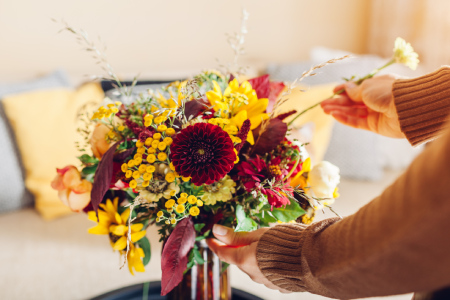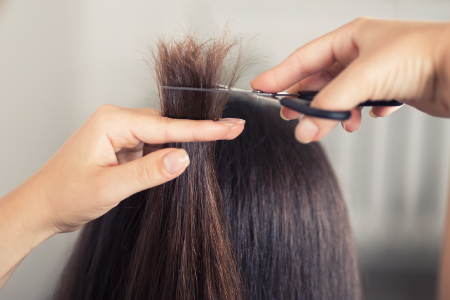Preparing for Chinese New Year

Chinese New Year, traditionally called Chūn Jié 春節 or “Spring Festival” is the most important holiday in Chinese culture. 15 days long, it is a celebration of the renewal of life, a time for ritual and prayer, gatherings of family and friends, and the observance of traditions. Based on the lunar calendar, it tends to fall somewhere from the end of January through the middle of February. Lots of preparations are done before the holiday so let’s look at some of the more modern Chinese traditions you can follow for good health, happiness, and better fortune in the coming year!
Things to do before Chinese New Year
We recommend starting at least 3 weeks ahead because some tasks can be huge and time-consuming.
- Get rid of clutter in your home and workspace. Physical clutter also clutters the mind and impedes the smooth flow of energy, or Qi, in you and your home.
- Deep clean. Cleaning your home ensures better health and can be deeply satisfying.
- Organize and put things in their proper place, from furniture to small items. Not only will you feel and move around better in your space, but with everything in its proper place you’ll be able to find it when you need it and be less annoyed!
- Donate things you don’t need to make room for things you do (keeping in mind that you might not need any more stuff anyway).
- Throw away/recycle broken things, especially chipped dishes and mugs. Superstition says it leads to “broken mouths” or arguments, but on a practical level no one wants to cut their lip or hands!
- Pay off debts. Whether it’s a credit card bill or the $20 you borrowed from your co-worker, start the year with a clean slate.
- Return borrowed items. Lawn mower, power tools, that crockpot—give them back. It’s not just the right thing to do—it’s less clutter!
- Decorate your walls with inspiring art. Traditionally, lucky couplets were plastered on walls, doors and beside door frames, always in pairs. They blessed the household and were affirmations of protective and auspicious wishes. Modern word art basically does the same thing!
- Decorate your home with bright flowers for happy energy and dare we say it? -romance or “peach blossom luck”, as peach flowers are said to symbolize romance, prosperity and growth.
- Lay out auspicious foods, like oranges, pomelos, and tangerines for wealth and good fortune, roasted melon seeds, peanuts, and candied lotus seeds for fertility, and brightly wrapped chocolates and candy for sweet days ahead. We like to set up a tableau of auspiciousness and fill a traditional candy box (usually round or octagonal, called “Quan He“ 全盒 or “Togetherness Box”).
- Get a new set of clothes to wear on New Year’s Day, preferably in bright, auspicious colors and/or motifs. Red is the fallback lucky color with blooming flowers, birds and bats being common motifs. Traditionally, folks also got a new set of pajamas to wear on New Year’s Eve as it was thought that having as many new things as possible brought more good luck and prosperity.
- Get a haircut. Traditionally it was symbolic of cutting off any bad mojo from the current year, but why not look your best and put a spring in your step?
- Get some cash. If planning to give away “Hong Bao” 紅包, or red envelopes, make a trip to the bank for crisp, new bills. Traditionally, marrieds give Hong Bao (in pairs) to children, but also to younger unmarried adult relatives. Formerly married or widowed older folks also tend to continue giving out red envelopes, although usually just a single envelope.


Things to do on New Year’s Eve
- Enjoy a meal with your family. Traditionally, an empty chair at the table symbolizes a family member who can't make the dinner. The menu might include:
- Whole fish. Because the Chinese word for fish sounds like the word for abundance. You should leave the head and tail on to be sure you get a good start and end to the year as well.
- Dumplings and spring rolls. Both are said to look like gold ingots. The more you eat, the more wealth you’ll earn in the new year.
- Noodles. The traditional longevity noodle is a continuous looping strand, but eating any long noodle is believed to bestow a long life.
- Oranges, tangerines, and pomelos. The Chinese names for oranges and tangerines are homophones for success and luck, while the word for Pomelo implies continuous prosperity.
- Take a shower and wash your hair before 11pm (Chinese hours are measured in 2-hour increments, and “midnight” is actually 11pm-1am) to ensure that you’ll readily absorb all the good luck coming.
- Turn on all the lights and open the windows and doors at “midnight” to let the energy of the old year flow out and to welcome in the new.
- Light firecrackers and fireworks to celebrate if your area allows it. Otherwise, sparklers and noisemakers are fun too!
In ancient times, gathering with family, lighting lights and setting off firecrackers and fireworks were intended for self-protection against the dreaded “Nian” 年 monster. People stayed up the entire night to stand guard. Today, some still stay up the entire night, but usually to play mahjong and drinking games, and to enjoy some raucous karaoke!
Whatever traditions you follow, we wish you a happy new year filled with robust health, great luck and abundance in all good things!
Read more about Chinese New Year Holiday Traditions here.

